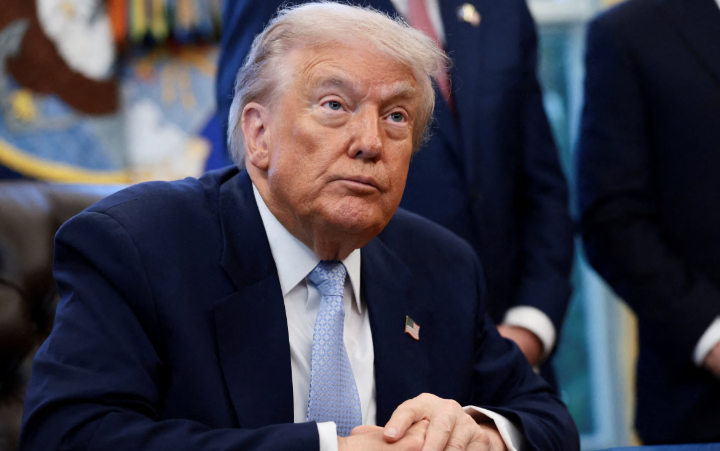WORLD NEWS

President Donald Trump has agreed to sign a bill that will force the release of the U.S. Justice Department’s investigative files on Jeffrey Epstein, the late financier and convicted sex offender. Despite months of efforts by the Trump administration to stall the measure, it passed the House of Representatives and Senate with near-unanimous support on Tuesday. The legislation is expected to land on Trump’s desk as soon as Wednesday.
Epstein and Trump: A Complicated Legacy
The release of these documents, which will provide new insights into Epstein's connections with some of the most influential figures in the U.S., has become a politically charged issue for Trump. Epstein, who once had a close relationship with Trump, has been at the center of a storm of conspiracy theories and public suspicion. In the 1990s and 2000s, Trump socialized with Epstein, and the two were often photographed together. However, Trump has distanced himself from the financier in recent years, describing their friendship as having ended after a "rift."
Trump's handling of Epstein’s legacy has become a point of contention, particularly among his supporters. Many Trump voters believe the administration has been complicit in covering up Epstein's ties to powerful individuals and obscuring the details surrounding his 2019 death, which was ruled a suicide while Trump was in office.
Trump’s Reversal and White House Strategy
After weeks of trying to block or delay the vote, Trump reversed course late Sunday night and called on House Republicans to pass the measure. White House aides had attempted to amend the bill in the Senate, but the strategy ultimately failed as the Senate moved forward with a version that bypassed the White House’s objections.
Despite his initial attempts to influence the vote, the Trump administration’s strategy in the Senate ended in defeat. A senior White House official confirmed on Tuesday that Trump would sign the bill once it reached his desk.
Limits to Trump’s Control Over Congress
The situation highlighted the limits of Trump’s influence over his own party. Even as he pressured lawmakers and strategized with Senate leadership, Republican lawmakers in Congress moved ahead with the measure against his wishes. The incident also underscored Trump’s waning political capital, as his approval rating on handling the Epstein situation plummeted. A recent poll found that only 44% of Republicans believed Trump was managing the Epstein issue well, with 60% of Americans believing the government was hiding information about Epstein’s death and the people involved in his sex crimes.
Trump’s Concerns: Distractions from His Agenda
While Trump has consistently denied any personal wrongdoing in connection with Epstein, the release of investigative files is a sensitive topic for the former president. White House spokeswoman Abigail Jackson explained that Trump’s main concern was that focusing on Epstein would distract from other key issues, particularly tax cuts and immigration policy, which were central to his 2016 campaign.
“President Trump has never been against releasing the Epstein files,” Jackson said. “Rather, he has always been against Republicans falling into the Democrat trap of talking about this rather than focusing on the historic tax cuts and other accomplishments of the Trump Administration.”
The Fallout and Public Reaction
The political fallout from this measure has been significant. Rep. Marjorie Taylor Greene (R-GA), one of Trump’s strongest supporters in Congress, was reportedly soured by the episode. The episode has also intensified public scrutiny of Trump’s ties to Epstein, who was arrested in 2019 on charges of sex trafficking minors. Though Epstein died in his jail cell shortly after his arrest, his case remains a subject of intense public interest, especially as new details continue to surface.
What’s Next?
As the bill now moves to Trump’s desk for signing, the documents it will release are expected to shed light on the high-profile figures linked to Epstein’s criminal activities. However, despite public calls for greater transparency, the full extent of the information is still unknown.
The decision to release the files could further fuel the growing public desire for accountability in the Epstein case, with many Americans believing that key figures connected to his trafficking operation have yet to face justice.
Trump’s decision to sign the bill, albeit after considerable internal conflict, marks a turning point in his handling of the Epstein controversy. Moving forward, the release of these files could have broader implications for both public trust in the government and the political landscape ahead of the 2024 presidential election.




